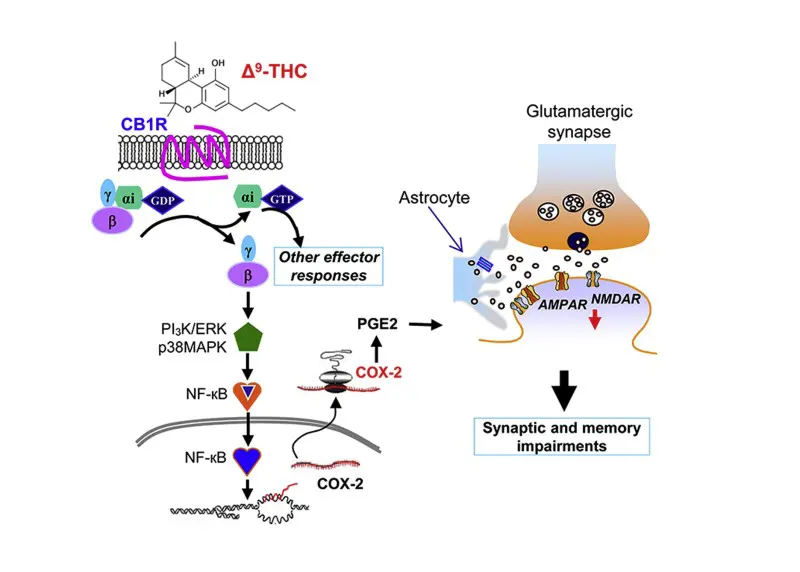With the amount of research going into cannabinoid therapeutics, patients are more eager than ever to utilize cannabis as a medication. However one of the drawbacks of using cannabis regularly is its effects on memory, a problem which may be a thing of the past according to the findings of a study published last month in the journal Cell.

The study led by Dr. Chu Chen, professor of Otorhinolaryngology and Neuroscience at the Louisiana State University of Health Sciences Center determined that the use of non-steroidal anti-inflammatory drugs (NSAIDs) such as ibuprofen could greatly reduce memory deficits associated with cannabis use.
The study found that administration of THC in mice increased the level of an enzyme called cyclooxygenase-2 (COX-2) in the hippocampus, the area of the brain responsible for memory formation. COX-2 is the enzyme that produces inflammatory molecules called prostaglandins. Mice treated with compounds that reduced COX-2 levels showed a decrease in memory problems and neuronal abnormalities seen in mice that were consistently exposed to THC. Another means of COX-2 inhibition is through over the counter painkillers like ibuprofen. Therefore the use of NSAIDs could be a cost effective strategy to mitigate the effects of THC on memory.
There are also other natural COX-2 inhibitors that are less harsh on the liver that cannabis users might find more acceptable. The acidic cannabinoid cannabidiolic acid (CBDA) has been shown to be a selective COX-2 inhibitor (Takeda, 2008). In addition other cannabinoids like cannabigerolic acid (CBGA) are able to inhibit this class of enzymes (Ruhaak, 2011).
Sources:
1.Takeda, 2008. Cannabidiolic acid as a selective cyclooxygenase-2 inhibitory component in cannabis Drug Metab Dispos.2008 Sep;36(9):1917-21
2.Ruhaak, 2011. Evaluation of the cyclooxygenase inhibiting effects of six major cannabinoids isolated from Cannabis sativa Biol Pharm Bull.2011;34(5):774-8.
